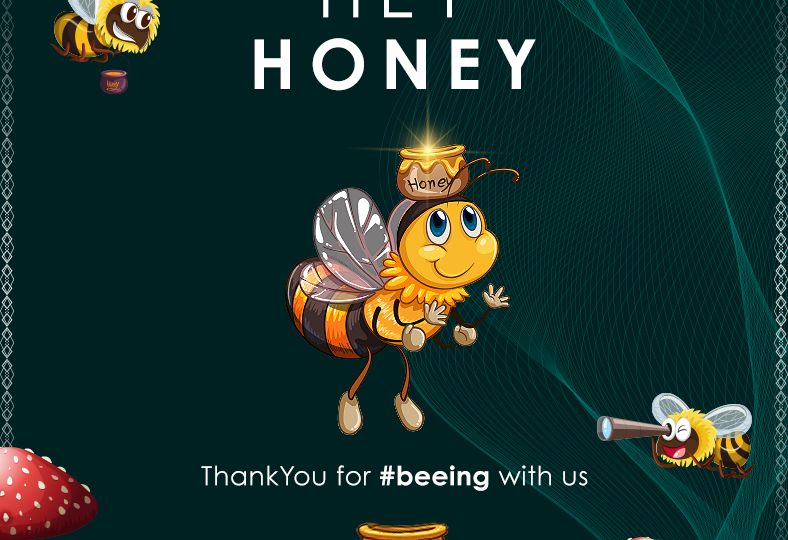
𝐖𝐨𝐫𝐥𝐝’𝐬 𝐁𝐞𝐞 𝐃𝐚𝐲…..! (𝟐𝟎𝐭𝐡 𝐌𝐚𝐲)![]()
Today, Every third spoonful of food depends on pollination, and bee products are a rich source of essential nutrients, In order to produce a kilogram of honey, a bee has to visit four million flowers and fly four times the distance around the planet.
Bees are essential for human survival:
Human activities are rapidly threatening bees and other pollinators including butterflies, bats, and hummingbirds. However, pollination is an essential mechanism for the survival of our ecosystems. Nearly 90 percent of the world’s wild blooming plant species, as well as more than 75 percent of the world’s food crops and 35 percent of global agricultural area, rely totally or partially on animal pollination. Pollinators are important not only for food security but also for biodiversity conservation.
The United Nations established May 20 as World Bee Day to raise awareness about the importance of pollinators, the risks they face, and their contribution to sustainable development. The goal is to increase bee and other pollinator protection measures, which would go a long way toward alleviating global food supply concerns and eradicating hunger in developing nations.
Honoring the variety of bees and beekeeping methods:
Beekeeping is a widespread and global activity, with millions of beekeepers relying on bees for a living and a way of life. Together with wild pollinators, bees play an important role in preserving biodiversity by guaranteeing the survival and reproduction of many plants, fostering sustainability and resilience to climate change, and increasing the amount and quality of agricultural products.
This year, FAO will mark World Bee Day with a virtual event themed “Bee Engaged: Celebrating the Diversity of Bees and Beekeeping Systems.”
We must act immediately:
Bees are in danger. Because of human influences, current species extinction rates are 100 to 1,000 times greater than usual. Around 35% of invertebrate pollinators, primarily bees and butterflies, and 17% of vertebrate pollinators, such as bats, are on the verge of extinction. If this trend continues, nutritional crops such as fruits, nuts, and many vegetable crops will be progressively displaced by staple crops such as rice, maize, and potatoes, resulting in an unbalanced diet.
Intensive agricultural techniques, land-use change, monoculture, pesticides, and increased temperatures linked with climate change all pose challenges to bee populations and, by consequence, the quality of food we grow.
What else can we do?
Individually, we can help by:
- planting a diverse set of native plants that flower at different times of the year;
- purchasing raw honey from local farmers;
- purchasing products from sustainable agricultural practices;
- avoiding pesticides, fungicides, or herbicides in our gardens;
- protecting wild bee colonies when possible; sponsoring a hive;
- creating a bee water fountain by leaving a water bowl outside;
- assisting in the sustainability of forest ecosystems; and raising awareness around us by sharing this. The loss of bees impacts all of us!
As beekeepers or farmers by:
- we may help by decreasing or modifying pesticide use,
- diversifying crops as much as possible, and/or growing attractive crops surrounding the field,
- building hedgerows.
Governments and decision-makers are represented by:
- Increasing the engagement of local populations in decision-making, particularly indigenous people who understand and value ecosystems and biodiversity;
- implementing strategic methods, such as monetary incentives, to encourage change;
- growing pollination service monitoring and evaluation coordination across national and international agencies, organisations, and academic and research networks.

